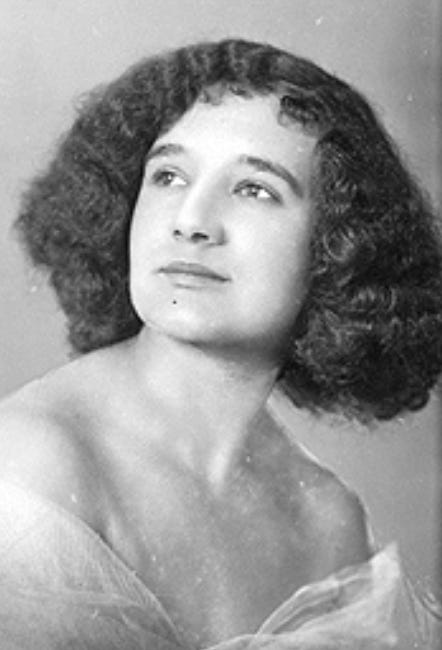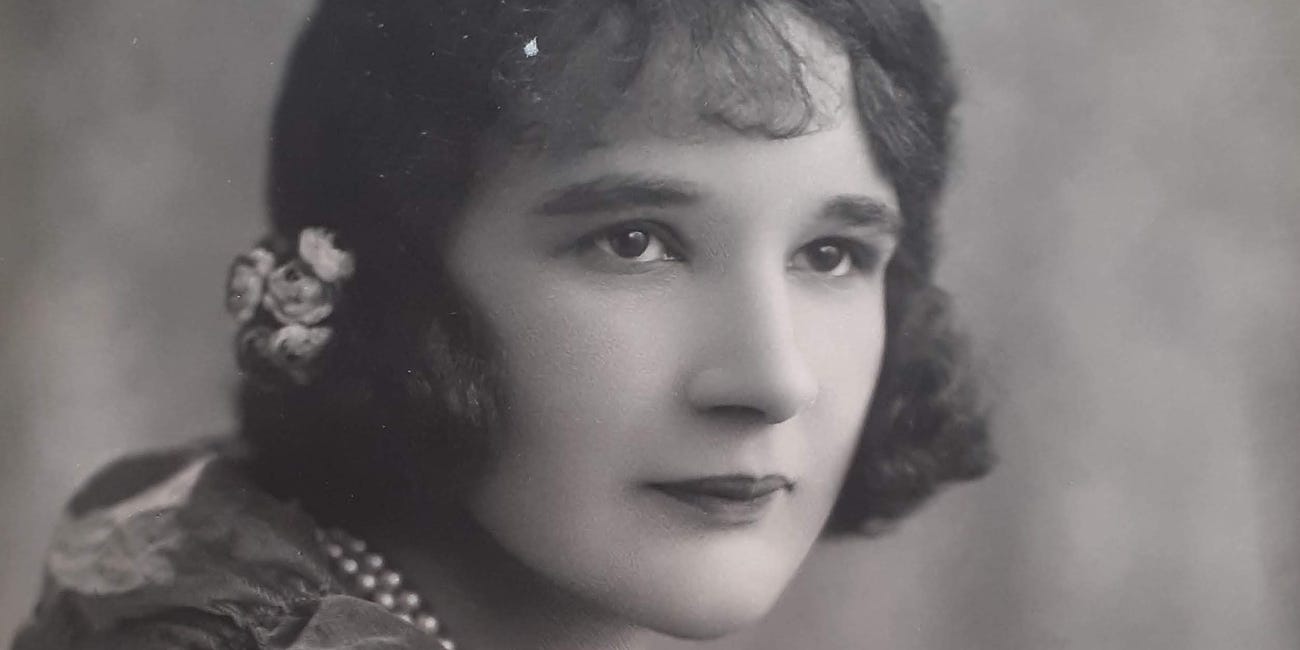When I first heard Avril Coleridge-Taylor’s orchestral work Sussex Landscape, I was completely taken by surprise. She moved to Sussex because she loved the countryside there, so given both the title and the norms of her style I was expecting to hear something pastoral, idyllic, possibly nostalgic.
There’s a little of this in the second movement, but the first and third movements are unrelentingly bleak, at times seeming funereal and full of foreboding. I wondered if she perhaps she felt restricted or trapped by her surroundings — or maybe this was a view from the Sussex coast on a particularly gloomy day? At any rate, it is certainly a musical landscape that feels more menacing than welcoming.
Her manuscript score, though, opened up a completely new perspective on the piece, changing how I heard it. At the head of the work, there’s an epigraph from a poem by John Drinkwater:
…Into your Sussex quietness I came, When summer’s green and gold and azure fell Over the world in flame. And peace upon your pasture-lands I found… And now the broken thought Of nations marketing in death I know,… Was it but yesterday I came among your roses and your corn? Then…amid this wrath I pray For yesterday reborn.
It’s an extract from ‘Of Greatham’, which Drinkwater penned during World War I. In the poem Sussex is a refuge, but it is nonetheless touched and shaped by the horrors of war, by ‘nations marketing in death’. One of the omitted lines speaks of ‘the very winds to threnodies…that on your downlands blow.’ The epigraph puts quite a different spin on the work’s title. Suddenly, Sussex Landscape becomes both an elegy and a warning, depicting a world under threat of destruction.
The manuscript also gives us a date for the work: 1940. Coleridge-Taylor penned Sussex Landscape in the period immediately following the outbreak of World War II in September 1939. While she was composing this piece, many in England were preparing for what they believed would be imminent invasion. Blackouts were enforced, gas masks carried, and food rationing started. By 1940, it seemed as though the Nazis would win the war. Denmark, Norway, Belgium, the Netherlands and Luxembourg surrendered in a matter of days, France fell in June, and then the Blitz began in September.
With this as the political context surrounding the piece’s composition, no wonder Coleridge-Taylor’s Sussex landscape sounds so desolate. She had previously responded to ‘Of Greatham’ in 1936, with a much shorter one-movement work simply entitled Landscape. This is much more in the style that I originally expected from Sussex Landscape — it’s not bucolic as such, but is certainly less tormented than its successor. Also, the lines that Coleridge-Taylor highlighted from the poem in 1936 were quite different:
…Into your Sussex quietness I came, When summer’s green and gold and azure fell Over the world in flame. And peace upon your pasture lands I found… Unbroken peace when all the stars were drawn Back to their lairs of light, and ranked along From shire to shire the downs out of the dawn Were risen in golden song.
In 1936, Sussex was a place of ‘golden song’; by 1940, Coleridge-Taylor’s attention was on the ‘nations marketing in death’. These two works give us a direct insight into how the war impacted on the composer, changing her relationship to the world around her and shaping her style as a result. She followed the news avidly and wrote a number of works that responded immediately and directly to the ongoing conflict, including her Piano Rhapsody and choral work Historical Episode, which she noted was ‘inspired by the Campaign held by General MacArthur of the Philippines’. These pieces are a powerful musical testament to life on the home front, Coleridge-Taylor responding to the war in the only way that made sense to her — through her music.
We know so many “war works” by men — Shostakovich’s Seventh Symphony, Messiaen’s Quartet for the End of Time, etc — but what about those written by women? Women’s lives were just as profoundly impacted by war as men’s. It would be quite bizarre if men responded to World War II in their compositions, but women did not. And yet we barely know this history because these works are so rarely performed or recorded, either at their time of composition or now. As far as I know, despite Coleridge-Taylor’s best efforts neither Sussex Landscape nor Historical Episode were performed in her lifetime. Sussex Landscape has been recorded once, by Chineke! Orchestra. Her other war works are in manuscript, still waiting for a recording.
I’m particularly interested in recovering works by women that explicitly engage with politics like this, because they go against the seemingly persistent tendency to frame women’s music as primarily domestically-focused. Yes, women composers have written lullabies and waltzes, and romance and nature have been important themes in many works penned by women. But that’s not the whole story. Women have also written works that are focused on politics and philosophy and power, that deal with war and death and topics historically thought of as being the exclusive preserve of men. I want to be able to hear these parts of historical women’s experiences too, hear these sometimes fearful and monstrous works that are full of anger and pity and hope — that dare to protest, to take a stand, to voice an opinion. If war works by Shostakovich, Messiaen, Britten, Vaughan Williams, Prokofiev, Britten and Tippett can be heard as ‘timeless and profoundly moving’ responses to their times, then perhaps so too can the war works of Avril Coleridge-Taylor, Ruth Gipps, Elizabeth Maconchy, Marion Bauer and so many, many more.
If you’d like to find out more about Avril Coleridge-Taylor, my catalogue of her works and a post about her early career are available below.
Cataloguing Avril Coleridge-Taylor
The first time I meet the Dashwood family, I’m recording a radio feature about composers including Avril Coleridge-Taylor. As Avril’s closest living relatives, I’ve come to interview them about her, to get a sense of who she was. They’ve also told me that they have some of her music — and while I’m curious to see it, I mostly assume that it will consist…
“The composer’s daughter”
It was an unusually mild January, but the crowds hustling in to Plymouth’s Guildhall were still bedecked in jewels, furs, and evening suits to protect against the evening chill. And the crowds were considerable. The evening’s concert was set to be one of the highlights of the 1921 calendar. The music was by the late Samuel Coleridge-Taylor, one of Brita…





Thank you for this! I listened to Sussex Landscape recently and was perplexed by how epic and ominous it sounds. Not at all what I expected! Your commentary here gives a convincing explanation of what was behind it.